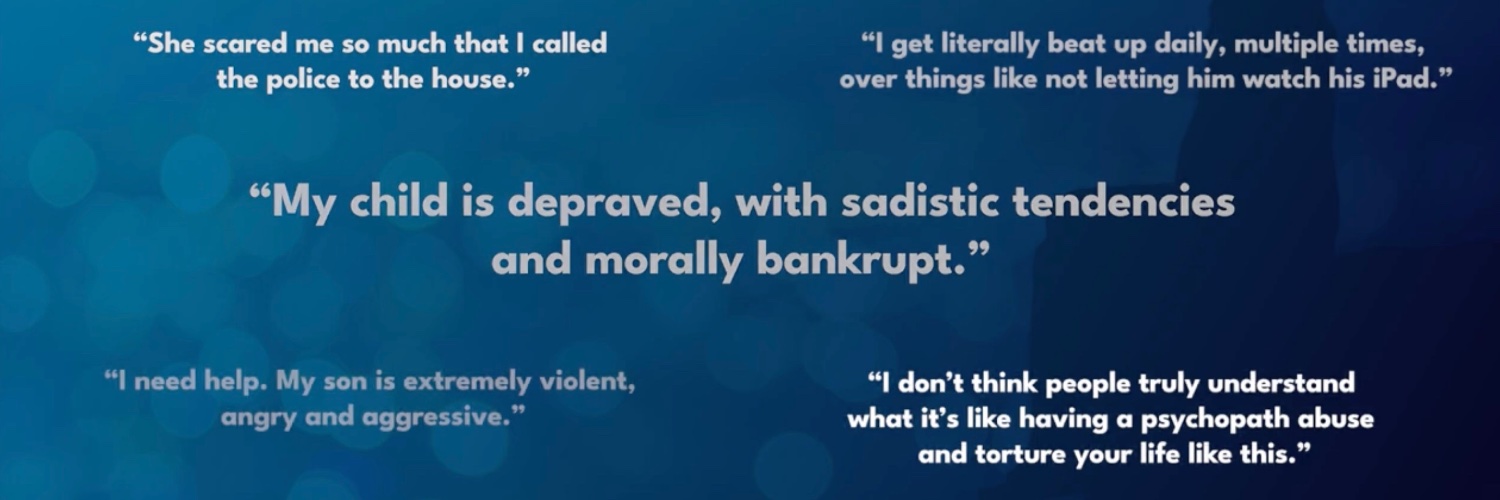
Preventing Disorders of Aggression
@PsychopathyIs
Researchers, clinicians, and those with lived experience who seek to provide support & resources to individuals and families affected by disorders of aggression
63% of violence is committed by 1% of the population. Their violence is predictable and therefore preventable, agrees @DavidMuhammad of @NICJR01. SPDA is working to prevent it.

One mother of a teenage boy with a severe and complex autistic spectrum disorder and who has been physically assaulted, pinned to the floor, concussed and cut, says there is not enough support for families experiencing violence from their own children. bbc.com/news/articles/…

Differences in self-control are present in early childhood and can predict multiple indicators of health, wealth, and crime across 3 decades of life in both genders. Children's self-control predicts their adult outcomes as well as IQ or social class. pnas.org/doi/10.1073/pn…
A group parenting intervention results in reduced antisocial behavior in children that corresponds with normalized brain activation patterns and reinforcement learning parameters. Changes in parenting style targeted by the intervention correlated with some of these changes.
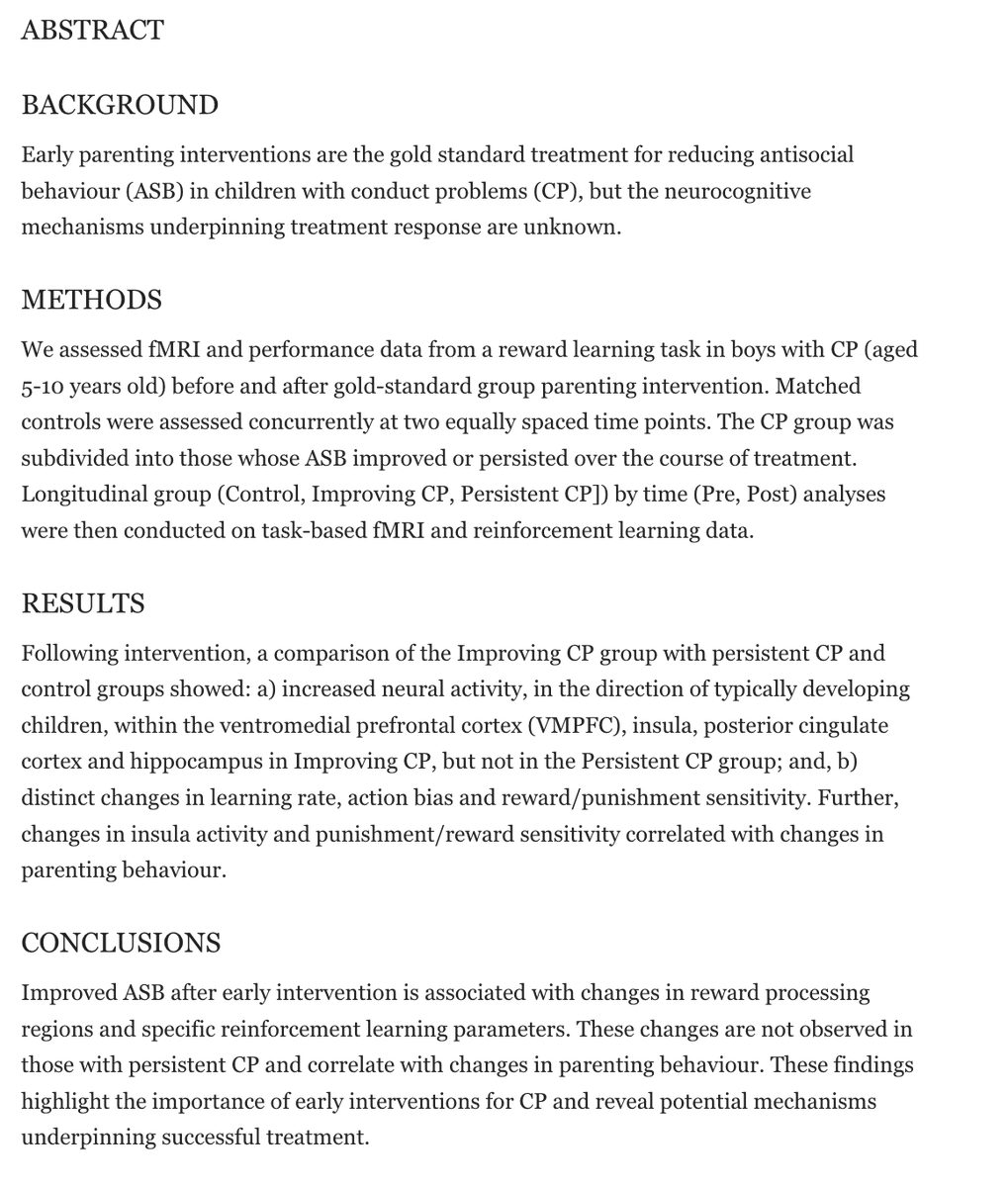
The best treatments for children's disruptive behavior (ADHD, ODD, CD) require parents to work directly with a therapist to learn effective behavior management techniques. New research suggests this therapy can be effectively delivered via mobile phone. link.springer.com/article/10.100…
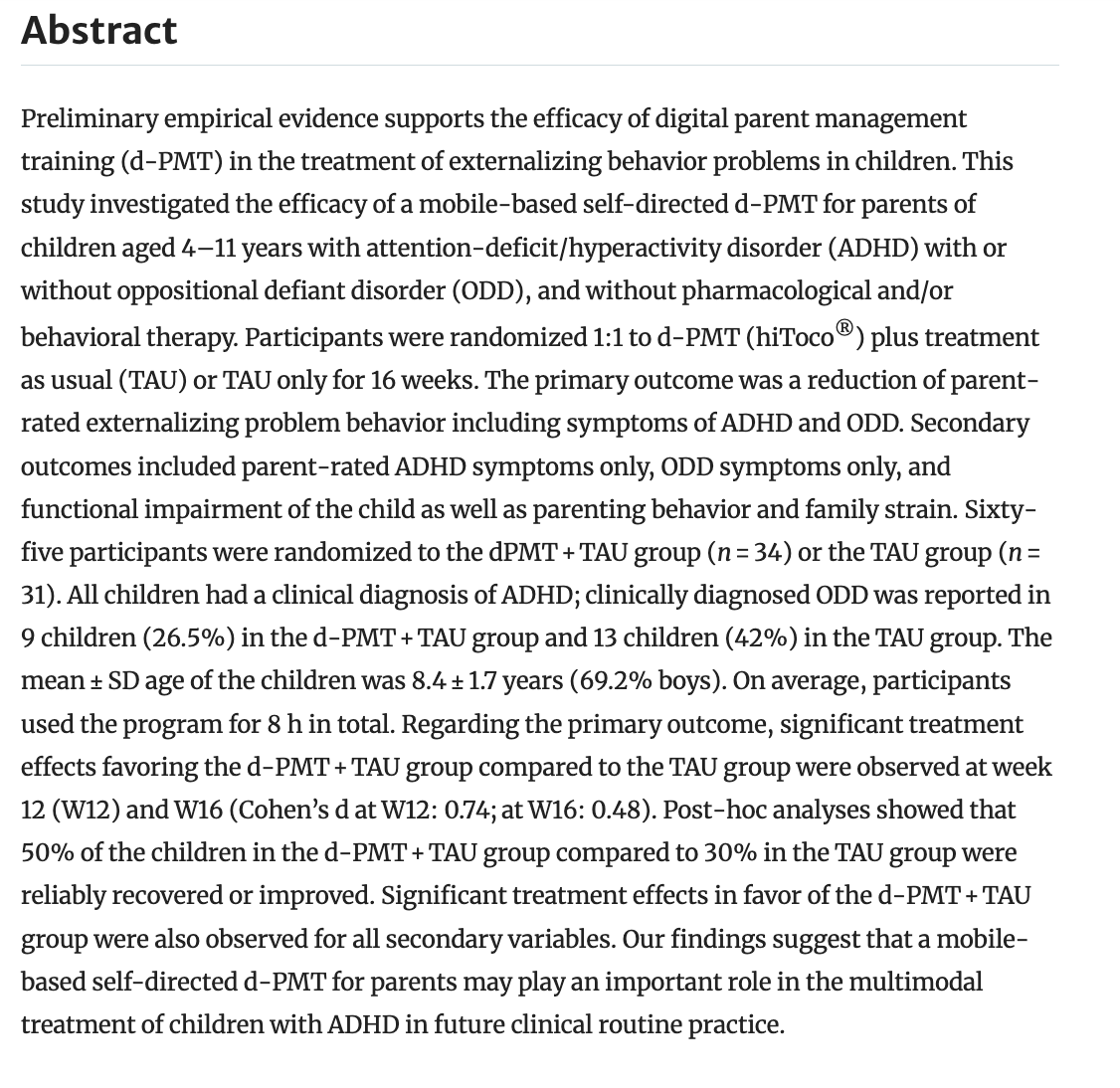
New study using smartphone sensor variables to predict psychopathology finds that antagonism is associated with a later bedtime, fewer and shorter outgoing calls, less battery charge, and more screen unlocks. @JAMA_current jamanetwork.com/journals/jaman…
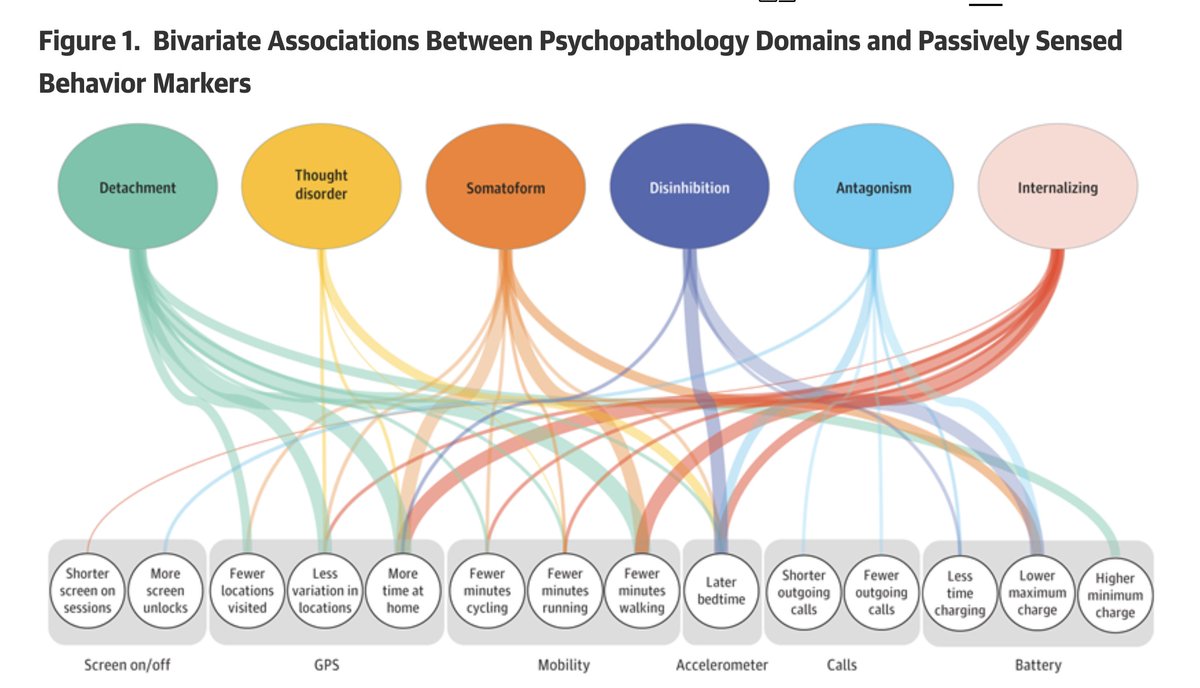
Using the term "dark" to refer to traits of psychological disorders like psychopathy and narcissism is stigmatizing and wildly inappropriate for professional psychologists, argue David Chester, Donald Lynam, and Josh Miller. It should stop. news.vcu.edu/article/2025/0…

The trope that psychopathy is somehow uniquely untreatable needs to be put to bed for good. Of course it can be treated. We just need to get serious about trying. This excellent @sciam article reviews some of the challenges involved. scientificamerican.com/article/is-it-…

Better efforts to identify and treat child psychopathy are a matter of life and death. New research founds that among teens in detention, those with high psychopathy scores were less likely to survive over the next 10-14 years. psypost.org/youth-with-psy…
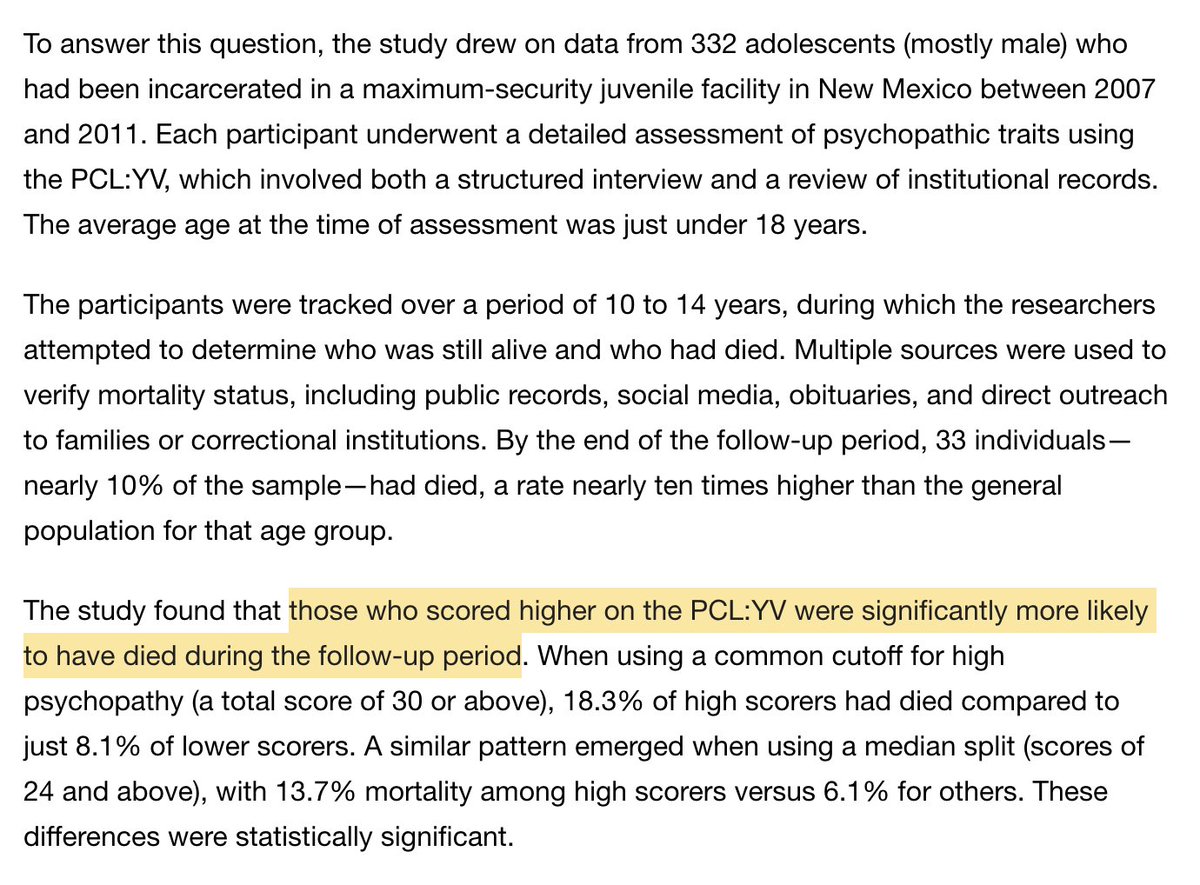
New review finds clinicians experience a range of challenging emotions when working with patients with psychopathy or ASPD, which may help explain why people with these disorders face unusual barriers to treatment (leading to myths they are "untreatable"). frontiersin.org/journals/psych…

The tendency to lie is a trait that is consistent across time and settings. If you know someone who lies to other people... they are probably lying to you as well. Another great paper by @IsabelThielmann and colleagues. psycnet.apa.org/record/2025-70…
Extensive evidence now supports psychopathy as a neurodevelopmental disorder, with reliable markers of adult psychopathy detectable as early as age 3--which is when screening for risk factors should start. pubmed.ncbi.nlm.nih.gov/17696707/
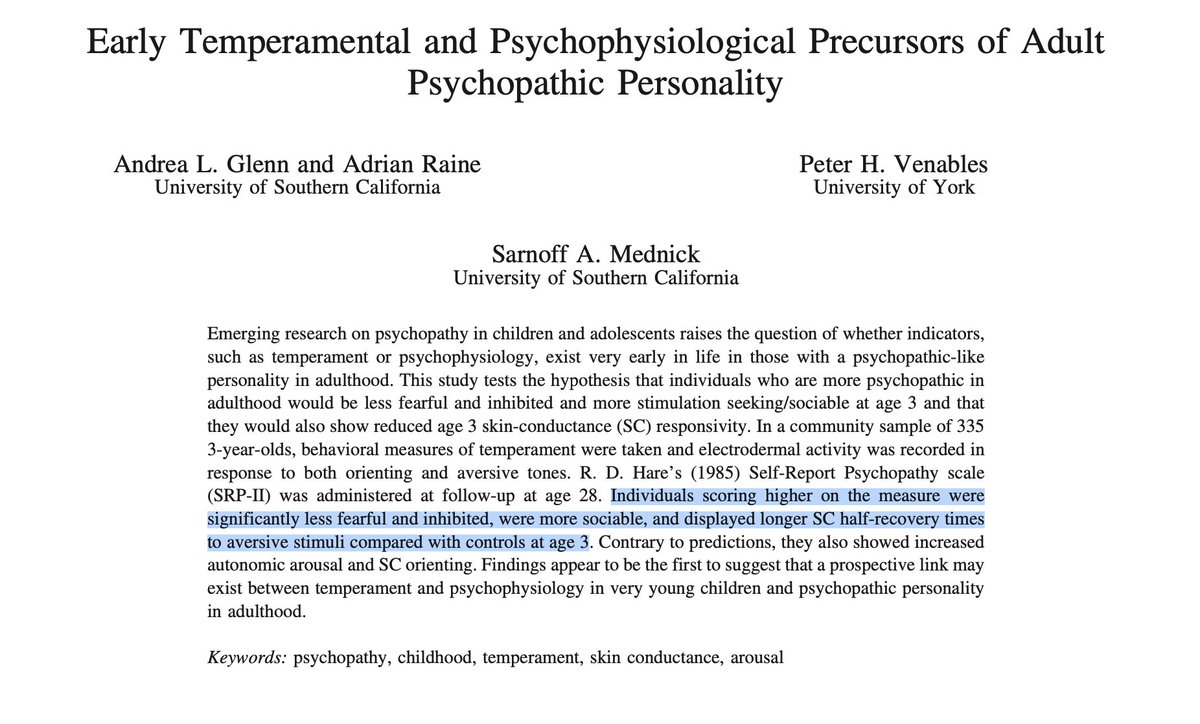
The Emotion Health and Psychophysiology lab at Yale University is hiring a lab manager. Applicants should have a BA/BS in psychology or related field. Please send CV/resume and cover letter to [email protected]
Summer jobs programs don’t help future youth employment, but they DO reduce violence. Learn why--and about why repeated evaluations can create an evidence base that is more convincing, illuminating, and practical than any single study can be. @ssrc_org events.zoom.us/ev/AjXT6gXbBFg…

Improving your relationship with your child doesn't have to be complicated. Here are 5 simple ways to strengthen your relationship using PCIT skills. For more information on PCIT visit: parentchildinteractiontherapy.com
This M/W, @theNASciences is sponsoring on online workshop on the neurobiology of empathy and compassion, including disorders like psychopathy. Register to attend (for free) and hear from @PatricGagne @thepsychologist @clauslamm @richiedavidson and more! nationalacademies.org/event/44350_05…

Thank you to the @ClevelandClinic for this clarifying passage on the term "sociopath." health.clevelandclinic.org/sociopath-pers…

It’s interesting to think about how children’s behavior can shape parenting responses. This highlights the need for tailored interventions for parents, especially those with children at high genetic risk for ADHD. Have any studies explored how early interventions could help…
When it comes to parenting and childhood disorders, it's important to consider "evocative effects": how children evoke parenting responses. New research finds that children at high genetic risk for ADHD evoke lower supervision and inconsistent discipline. link.springer.com/article/10.100…
The @AHRQNews reviews interventions for disruptive behavior in children and teens. Takeaway: the best treatment involves kids AND parents (or just parents) to help teach kids better behavior-regulation skills. Evidence for other approaches is limited. effectivehealthcare.ahrq.gov/products/disru…
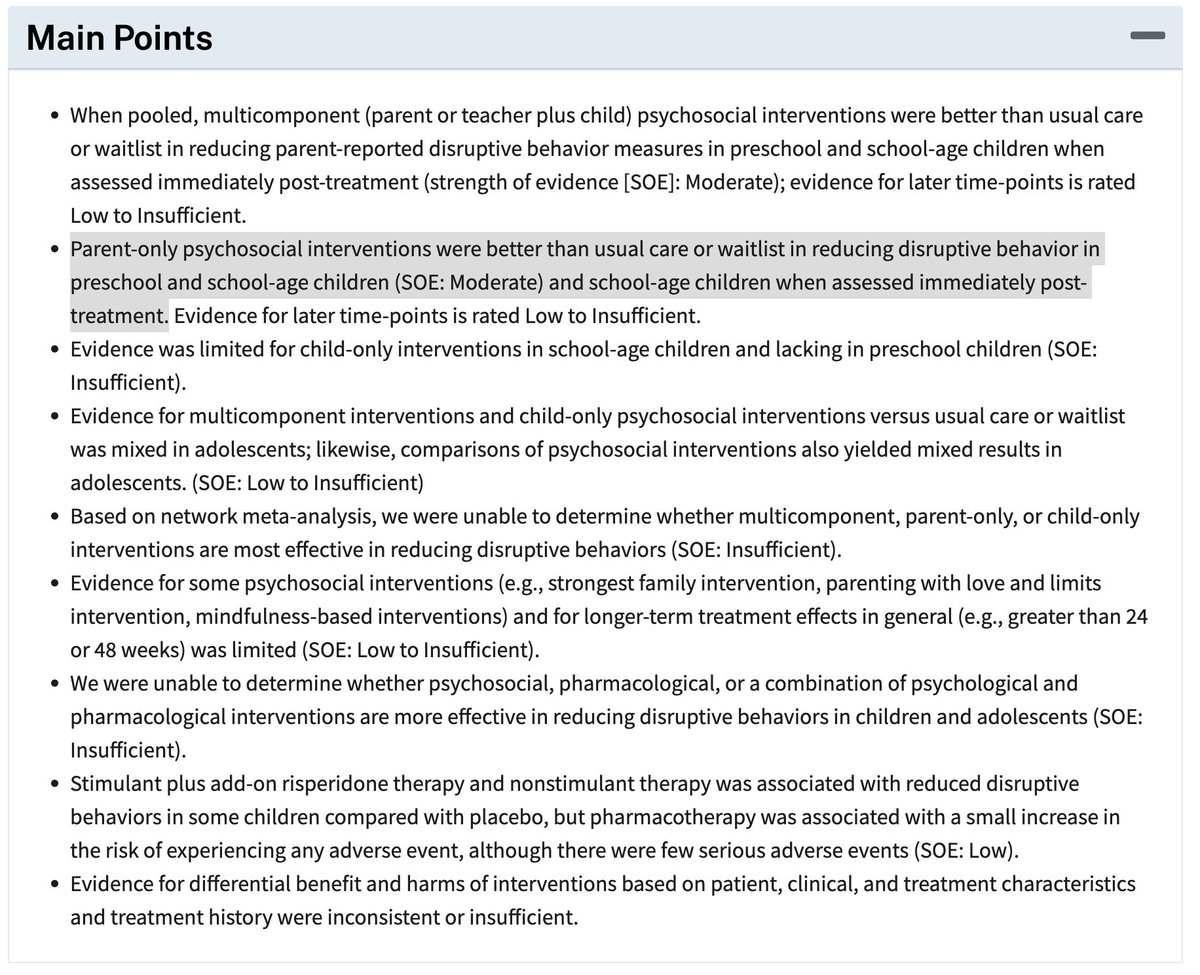
Social media platforms like @tiktok are rife with people selling false information about disorders like ADHD and CD so non-experts can sell products or "coaching" services. Do NOT get your mental health advice this way. nytimes.com/2025/03/19/wel…

People with psychopathy report feeling less pain than other people when experiencing painful stimulation, which may explain their greater risk-taking, increased violence and aggression, and reduced empathy for others' pain. @ConversationUS theconversation.com/psychopaths-ex…
